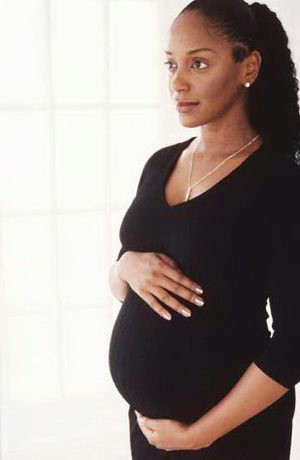Fertility Talk With Dr Ajayi: Female Infertility & Risk Factors
Fertility Talk With Dr Ajayi: Female Infertility & Risk Factors

Female infertility is defined when a woman fails to conceive within 12 months of regular unprotected sexual intercourse due to challenge(s) in the woman. Regular intercourse should ideally take place 3-4 times in a week well-spaced apart, with semen deposited in the upper part of genital tract. Healthy sperm cells can survive up to 3-5days in the genital tract, whereas the eggs are viable up to 24hours after ovulation. It is classified into primary infertility, when the woman had never been pregnant before, and secondary, in which case there had been pregnancy in the past irrespective of the outcome of such pregnancy.
Generally, fertility is at its peak in the early 20s and the chance of natural pregnancy under normal condition is 25% per month, it is expected that about 80% of women would have achieved pregnancy after a year of trying. The incidence of infertility is 10-20% worldwide and 25% of couples have this challenge in Nigeria. Female factor infertility accounts for 40-50% of cases, about 20% of affected individuals achieve pregnancy with minimal assistance but up to 60% need assisted conception.
Risk factors for female infertility include: Age, sexually transmitted disease, Pelvic inflammatory disease, poor diet, overweight, underweight, alcohol, tobacco use, too much exercise, Stress, uterine abnormality. The age factor is very important because from about age 35, a woman’s fertility potential gradually declines, the reason is straightforward. She is born with all the eggs she’ll have and with time, the supply diminishes, the remaining eggs also age along with the rest of the body. Infertility in older women may be due to a higher rate of chromosomal abnormalities that occur in the eggs as they age. Older women are also more likely to have health problems that may interfere with fertility. The risk of miscarriage also increases with a woman’s age. It is recommended that women seek medical help after a year and those older than 35years after six months of trying to conceive.
Causes of female infertility include: Pelvic inflammatory disease (PID), endometriosis and pelvic adhesions. Ovulatory disorders, polycystic ovary syndrome, premature ovarian failure and menopause. Abnormality of the genital tract like uterine fibroid (depending on size and location), polyp, tubal blockage, Genetic /congenital malformation of genital tract; Immunological condition such as antisperm antibody, Hormone dysfunction.
Management starts with fertility evaluation, this involves history taking, examination and investigations, to identify the area (s) of challenge and plan a wholesome treatment. Women are advised to undertake fertility evaluation along with the spouse, this way a combined factor will be identified, the husband’s education on the process and support will also be ensured while treatment lasts.
Specific tests done are Hormone test while on menses, ovarian reserve test after Clomiphene challenge for older women, ovulation function tests in the luteal phase. Antimullerian hormone for ovarian reserve. Radiological test (HSG) for tubal patency and uterine evaluation. Evaluation of the uterus and adnexae is done with sonohysterogram, hysteroscopy and laparoscopy respectively
Treatment is planned based on finding at evaluation, this would take the form of specific education and counseling based on identified knowledge gap, there may be need for lifestyle modification, ovulation induction with oral drugs or injections. Assisted conception options like intrauterine insemination, in-vitro fertilization (IVF), oocyte (egg) donation or surrogacy may be indicated as the case may be. Adoption could be advised as a last option.



